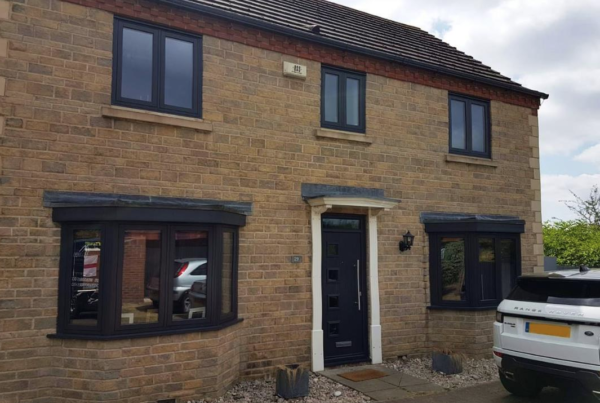
Thrive, don’t survive.
How to save money on your energy bills in 2024. The UK has recently been through some tough financial times, with inflation rates soaring to around 10% in September 2022. In addition to the Government announcing the UK economy had fallen into a recession in February 2024. Even though recent data shows gas and electricity prices are falling, which in turn has meant that inflation has risen by 3.2% in the last 12 months.
Recently, the UK has ended up being part of a perfect storm due to storage, the market, covid and minimal government support. However, we’re all in this together. We’re going to list some useful & helpful tips & advice on how you and your family can save on energy bills in 2024.
We’ll break this down into two sections; One will be things you can do now or small investments to help save, and the other will be investments to make to improve your energy-saving capabilities over a long period. With that in mind, if you’re looking at methods on how to save money on your energy bills in 2024, keep reading.
What you can do now;
Only fill the kettle with the amount of water that you need. Why waste all that energy boiling all that water that is just going to cool down and not be used.
Let the dishwasher do the dishes – they use much less energy than washing the same number of dishes by hand. They use a small amount of water, and the temperature usually is much lower, too – Remember to put them on the ECO setting first to maximise those electricity savings.
After cooking, leave the oven door open to heat your kitchen. The oven might give off enough heat to adjust your thermostat, a far more energy-efficient use of that stored heat.
Use machines like washers, dryers, and dishwashers in off-peak times. You may be on an off-peak tariff where using electricity at certain times is cheaper – If so, this tip could save you £££
If you use the oven, cook a few meals at a time to get the most out of having your oven on. Batch cook your meals for the week and freeze them in portions. Not only do you have home-cooked meals for every day of the week, but you are also saving electricity too!
Ditch The Oven. Use the microwave instead of the oven for cooking your meals. You’ll save a fortune in electricity as the amount of energy used to power your microwave is nothing compared to heating up your oven AND it takes less time. It’s a win-win situation!
Turn down your thermostat. Almost half the money spent on energy bills is absorbed by heating and hot water costs. Turning your heating down by just one degree could save up to £80 a year.
Turn off standby appliances. Turning appliances off at the plug saves an average of £30 a year.
Now for the investments;
Invest in new double or triple-glazed windows. Depending on its construction, around 18% of heat can be lost through the windows of a house that is not energy efficient. Regarding monetary savings, category B-rated double glazing on a detached property is estimated to save approximately £110-140 a year in heating costs. If you’re interested in looking at the windows we provide or want to chat, click here.
Invest in Solar panels. This is a much more common way to save on electricity, especially if your house has a South/ West facing roof. The Government incentives have changed, but you can still get some grants or get them installed privately and selling back to the grid could make you a tidy sum.
Invest in new doors. Keep the draught and cold out. Doors account for 15% of the overall heat loss in a typical home. However, suppose they are in poor condition (or very old). In that case, they can contribute to higher air leakage and related energy losses. Modern design offers better insulation due to several factors. If you’re interested in looking at the Doors we provide or want to chat, click here.
Insulate Your Hot Water Pipes. Insulating your hot water pipes should save about 4 degrees in temperature loss, meaning you can turn down the thermostat and save yourself some money. You can do it yourself at a push, but it is a service that professionals offer.
Loft Insulation. Another great no-cost thing to do as the Government often have a grant on performing loft insulation in homes. It should save you approximately £225 per year. As you know – heat rises, and if there’s nothing to keep it in your home, it will escape into the air outside and will end up costing you a small fortune.
Cavity Wall Insulation. You will find that cavity wall insulation will give you a massive reduction in energy bills. There are also government grants that often mean the cost to you is zero. You can’t lose!
Buy efficient appliances. Throwing out a perfectly good appliance will save you little money, but when it is time to swap, going for one with a high energy-efficiency rating can be worth the investment.
- An A+++ washing will typically use £65 less energy than an A+ one over an 11-year product lifespan.
- A modern, efficient dishwasher typically costs around £7 less yearly than an older model.
- An A+++ fridge freezer will save about £320 in energy bills over its lifetime compared to an A+ model.
- Source
Install a new boiler. You can save energy by upgrading your old boiler to a new A-rated condensing boiler with a programmer, room thermostat and thermostatic radiator controls.
If you need help or someone to talk to.
We understand this is a tough & challenging time, and there is no shame in admitting you need help with bills or life or just need to chat with someone regarding your situation. Below we have put together a list of helplines & other valuable websites. With the tips we have outlined on how to save money on your energy bills in 2024, we hope we can help make life that bit easier going forward.
Energy Helpline: https://www.energyhelpline.com/help
Citizens Advice: https://www.citizensadvice.org.uk/consumer/energy/energy-supply/get-help-paying-your-bills/grants-and-benefits-to-help-you-pay-your-energy-bills/
Money Saving Expert: https://www.moneysavingexpert.com/budgeting-debt-help/#
Centre for mental health: https://www.centreformentalhealth.org.uk/helplines-and-crisis-contacts


